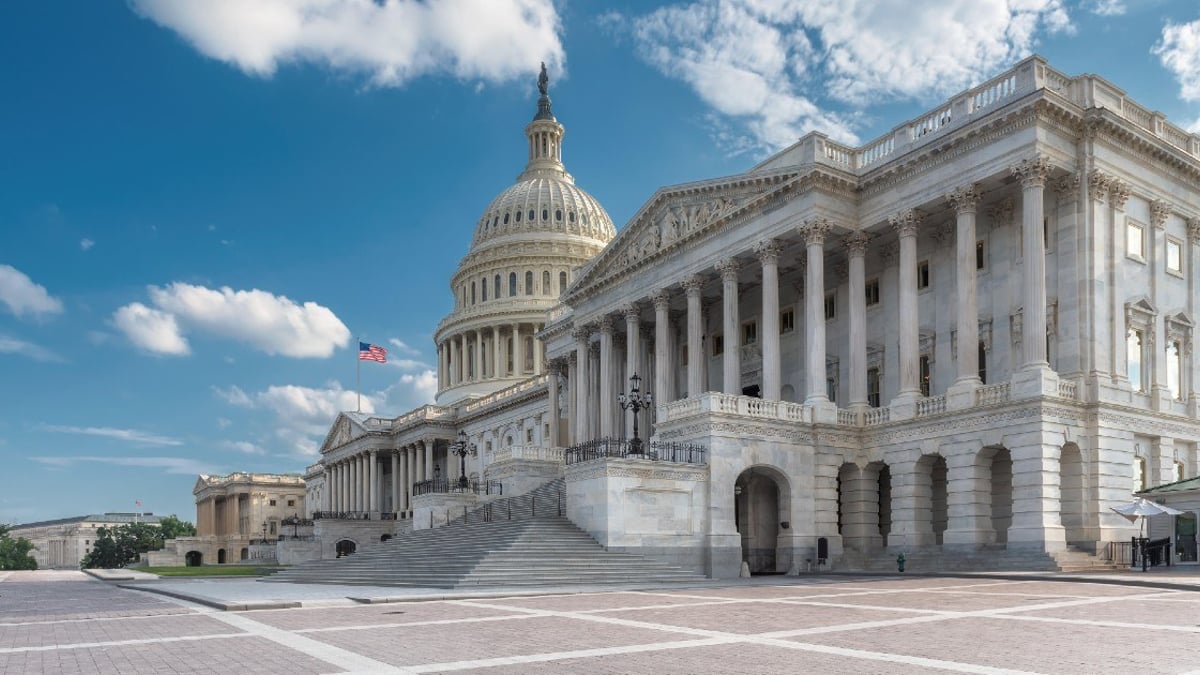The Federal Government’s Renewed Interest In Gambling

Because the federal government tends to stay out of the states’ way when it comes to gambling, when Rep Paul Tonko introduced a bill to clamp down on sports betting advertising, the industry paid little heed and largely dismissed it.
How could the inept federal government ever come together around this issue? Why will Congress put time and energy into sports betting when it has more pressing issues?
My first thought was not to dismiss it out of hand. Instead, my mind went to the Heath Ledger Joker meme from the Dark Knight … And here we go.
It’s true that states largely control their own gambling destiny, but the smattering of current and revoked federal online gambling laws have serious consequences, particularly in the online gambling space.
- The Wire Act has been a lightning rod in the online gambling discussion.
- The now-repealed Professional and Amateur Sports Protection Act (PASPA) prevented states from legalizing sports betting for over 25 years.
- The Unlawful Internet Gaming Enforcement Act (UIGEA) has made payment processing a nightmare for legal sites.
- The Indian Gaming Regulatory Act (IGRA) has prevented tribes from entering the online gambling arena as sovereign entities.
- The .25% excise tax on all sports betting wagers acts as an additional 5% tax on operators, with the proceeds disappearing into the federal government’s general fund.
It’s Like Déjà vu All Over Again
Federal action isn’t an archaic idea. The federal government has a recent history (going back just over 15 years) of involving itself in gambling.
- In 2006, Congress inserted UIGEA into the Safe Port Act.
- In 2011, the Department of Justice handed out indictments to the key players at the major online poker sites.
- The same year, the DOJ issued a Wire Act opinion that opened the door to intrastate online gambling.
- Throughout the 2010s, the Restoration of America’s Wire Act (RAWA) hung over the industry like the Sword of Damocles.
- In 2018, the DOJ issued a new Wire Act opinion.
- 2018 also gave us a sports betting hearing and saw Sen. Chuck Schumer and Sen. Orrin Hatch push a sports betting bill in December.
Not all of the above succeeded, but enough did. And they didn’t exactly come out of left field, but these instances caught the bulk of the industry and its customers unprepared. Now, with the temperature gauge turned up and the U.S. online gambling industry facing increasing scrutiny, it’s a little concerning that very few are taking the idea of federal action seriously.
It might not happen this year or next. But it could. More importantly, if the federal government does set its eyes on the industry, it is unlikely to be a positive development. And when it does, expect everyone to act surprised, and say they never saw it coming.
The Tonko Bill
Rep. Paul Tonko’s bill that aims at sports betting advertisements was the genesis of the latest round of federal intervention. The bill is controversial with how it deals with sports betting advertising, but the overarching theme of reining in advertising is a trending topic.
As I noted in a previous column, Tonko’s bill (as-is) isn’t the concern. The concern is it sparks a hearing(s) and opens up other avenues of exploration for lawmakers. After all, the Hatch bill isn’t that far in the past, and one of the chief supporters is the Senate Majority Leader.
The Hatch Bill was explained as a step forward (and it did have some positive elements), which is how crappy legislation is often created.
As Sen. Orrin Hatch wrote at the time:
“As I wrote in Sports Illustrated earlier this year, sports betting is inevitable – so let’s make sure it’s done right. This bill is the first step toward ensuring that sports betting is done right in the states that choose to legalize it. Just as importantly, it provides protections for states that choose not to go down that path.”
Congressional Gaming Caucus
Members of the Congressional Gaming Caucus (a bipartisan group of 30 or so lawmakers) are focused on increasing the slot reporting threshold from $1,200 to $5,000 and educating lawmakers on other gaming issues.
“The Caucus performs the critical role of informing members from across the country about issues related to gaming policy and advocating for policies to crack down on illegal operators and promote responsible and safe gaming.”
Trying to increase the slot reporting threshold and education can be a double-edged sword, as it puts gaming on the radar of lawmakers with opposing views on gambling.
Upshot
The more attention sports betting and online gambling receive (positive or negative), the more likely Congress will jump into the conversation. And that is not something anyone should take lightly.
Be first to get our exclusive sports offers!
Join today to stay up to date on your states gambling news and offers.








